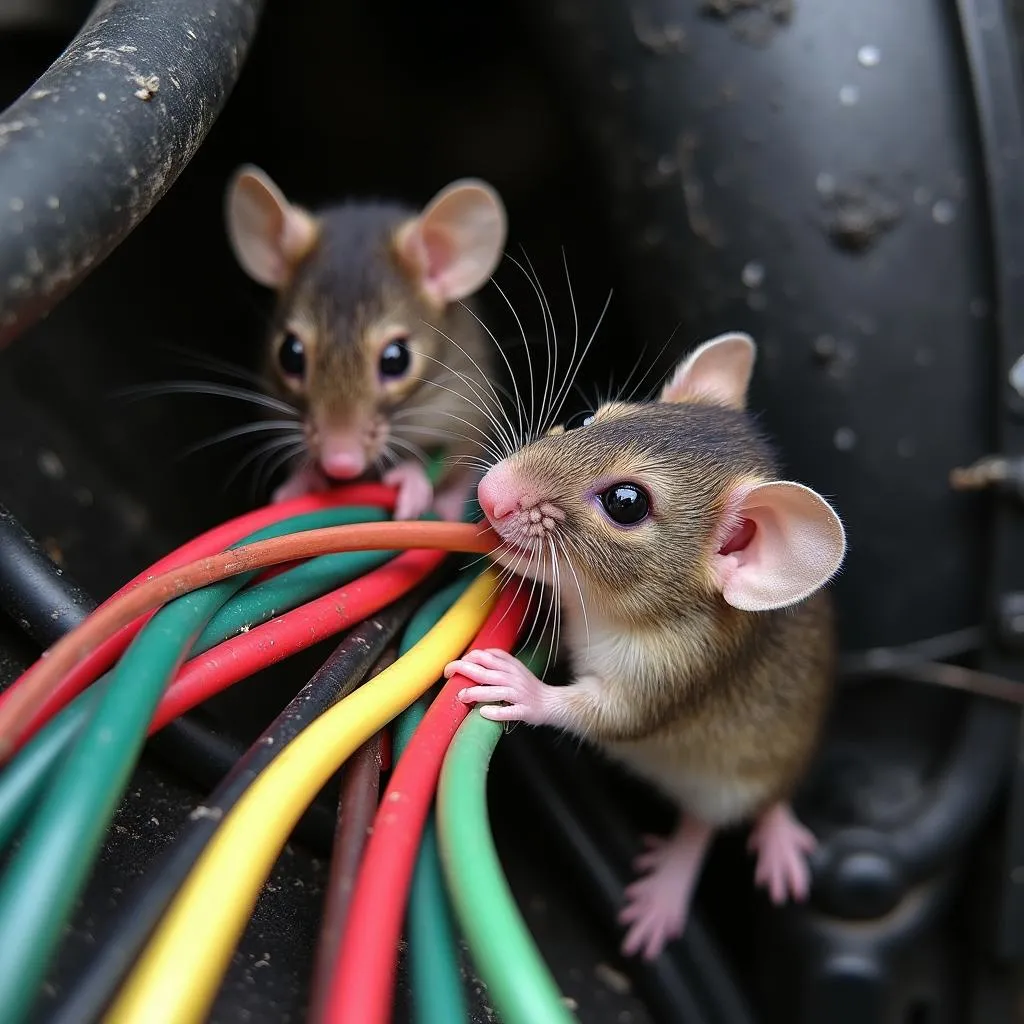You pull up to your favorite fishing spot, a picturesque lake nestled in the heart of Vermont. As you reach for your gear, a faint rustling sound comes from under the hood. It’s not your engine. It’s not the wind. It’s the telltale sign of an unwelcome guest: mice.
Finding mice in your car can be a nightmare. Not only are they unnerving, but they can also cause significant damage by chewing through wires, insulation, and even interior components. As a mechanic specializing in European car electrical systems, I’ve seen the havoc these critters can wreak.
Why My Car? Understanding the Mouse Appeal
Mice are drawn to the warmth and shelter that cars, especially those parked for long periods, provide. Think of it like this: your car is a cozy haven from the harsh elements, particularly during the colder months. Dr. Anna Schmidt, a leading wildlife biologist, states in her book “Urban Wildlife Encounters” that “vehicles often offer an ideal micro-climate for rodents seeking refuge, especially those parked near potential food sources.” This is especially true if you park near wooded areas, garbage bins, or even in your garage where food crumbs might have accumulated.
It’s Not Just About Comfort: The Technical Damage
Beyond the “ick” factor, mice can inflict serious damage on your car’s electrical system. Imagine this: you’re driving down a busy Los Angeles freeway and suddenly, your engine sputters and dies. The culprit? Chewed wires caused by a family of mice who decided your engine bay was their new home.
Reclaiming Your Territory: How to Get Rid of Mice in Cars
Evicting these unwelcome guests requires a multi-pronged approach:
1. Prevention is Key
- Cleanliness is next to rodent-free-ness: Regularly clean your car’s interior, removing any food crumbs, wrappers, or potential nesting materials.
- Seal the Deal: Inspect your car for any gaps or holes, particularly around the engine firewall and near wiring harnesses. Use steel wool or rodent-proof sealant to block these entry points.
- Park Smart: Avoid parking near areas where mice are likely to congregate, such as garbage disposal areas or overgrown vegetation. If you have a garage, consider parking your car inside and keeping the garage door closed.
2. Show Them the Exit (Humane Eviction)
- Natural Repellents: Mice have a keen sense of smell and are repelled by certain scents. Consider placing cotton balls soaked in peppermint oil, dryer sheets, or clove oil under the seats and in the engine bay.
- Traps: Humane traps allow you to capture mice alive and release them far away from your home and vehicle. Bait the traps with peanut butter or cheese and place them strategically near areas where you’ve seen droppings or signs of activity.
3. Calling in the Professionals
For persistent infestations, it’s best to consult a professional pest control service. They have the experience and tools to handle the situation effectively and prevent future occurrences.
Beyond “Best Way”: Answering Your Questions
- What about mothballs? While often touted as a solution, mothballs are not recommended for use in cars. They pose health risks to humans and pets and are not very effective in repelling mice.
- Can mice damage my car’s engine? Absolutely. Mice can chew through wiring, causing shorts, electrical malfunctions, and even fires.
- I think I’ve gotten rid of the mice. How can I be sure? Look for signs like droppings, nesting materials, or a lingering odor. If you’re unsure, a professional inspection can give you peace of mind.
Related Rodent Woes?
- Best Ways to Prevent Mice from Entering Your Home
- Signs of Rodent Infestation in Your Garage
- DIY Rodent Control: Tips and Tricks
Need Help Diagnosing Electrical Gremlins?
If you suspect mice have damaged your car’s electrical system, don’t hesitate to contact us via WhatsApp at +84767531508. Our team of automotive experts is available 24/7 to assist with diagnostics, repairs, and to help you reclaim your car from unwanted furry guests.
Remember, dealing with a mouse infestation in your car is not just about eliminating an annoyance; it’s about protecting your investment and ensuring your safety on the road. By taking proactive steps and seeking professional help when needed, you can evict those furry freeloaders and enjoy a rodent-free ride.



